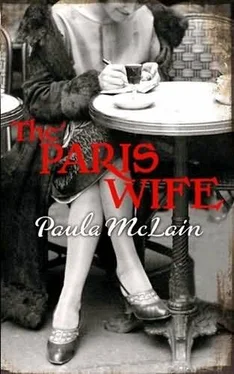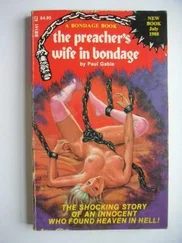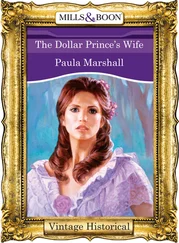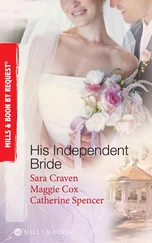It hadn’t been an easy road getting Kate to agree to even come to the wedding. There’d been a string of strained and difficult letters, nearly all of them going her way at first. But after many weeks, she finally confessed: I’m afraid I was very in love with Ernest at one time. Not sure why I haven’t been able to say this, except it’s been painful to see him fall for you instead, and terribly embarrassing to think the two of you might have laughed at my expense .
I felt a sharp sympathetic twinge reading her words. I knew well how low someone could be driven by unrequited love, and yet here was Kate, showing what a very good friend she was. She had loved Ernest and lost him to me, and was still willing to stand up for us both in front of our family and friends.
I was full of admiration for her that afternoon and couldn’t help swimming over to where she splashed in the shallows, saying, “You’re a good guy, Kate.”
“You too, Hash,” she said. Her eyes brimmed with tears.
If we had only known then that eight years ahead of us, in a Paris we hadn’t begun to imagine, John Dos Passos would fall victim to Kate’s sparkle and pursue her with force until she agreed to marry him. That Dos was a figure nearly as dashing and important to American letters as Ernest was would have softened this moment ever so much-but we never know what waits for us, good or bad. The future stayed behind its veil as Kate gave me a wan smile and paddled away into the reeds.
The water was so warm and ideal that afternoon, we swam until three, when I realized with a kind of panic that my hair would never dry before the service. We rushed back to the cottage where I tied it up with ribbons and then stepped into the ivory lace dress, which fit me so perfectly I thought it made up for the damp hair. There were creamy silk slippers for my feet, a garland of flowers, and a veil to trail down my back. I carried a spray of baby’s breath.
At four-fifteen, we entered the little church, which Kate and Ruth had decorated with swamp lilies and balsam and goldenrod picked from a nearby field. Ribs of sunlight pierced the window and scaled the wall. Ernest and his ushers stood at the altar, all of them flush and gorgeous in white trousers and dark blue jackets. Someone sneezed. The pianist began playing Wagner’s “Wedding March,” and I began to walk, led down the aisle by George Breaker, a family friend. I had hoped my brother Jamie could come out from California to give me away, but he was very ill with tuberculosis. My mother’s brother, Arthur Wyman, was my second choice, but he was also too unwell to attend. I felt sad that more of my family couldn’t be there with me, but wasn’t I getting new family that very day?
On my way toward the pulpit, I passed Fonnie, stiffly dressed with a small, tight navy hat. Roland stood beside her and gave me a dear smile, and then my niece Dodie grinned and pointed to Ernest’s knees, which were shaking slightly in his white flannel trousers. Was this just more evidence of cold feet, or something else? I honestly didn’t know, but it was too late to be asking these questions anyway-too late to stop or take anything back, even if I wanted to. And I didn’t want to.
The ceremony was quiet and beautiful and went off without a hitch. We walked out of the little church into the last of the day’s sunshine. Later, after a chicken dinner and sticky chocolate cake and too many pictures in the yard with everyone squinting into the sun, Horney offered to drive us out to nearby Walloon Lake, where we would be honeymooning at Windemere, the Hemingway family’s summer cottage. Grace and Dr. Hemingway had offered to put us up for two weeks as a wedding gift. It was dusk when we stepped into the rowboat and began our journey across the lake. Our luggage bumped around our knees, and a sweet nervousness fell between us now that the business of the day was over.
“Are you happy?” he said softly.
“You know I am. Do you need to ask?”
“I like asking,” he said. “I like to hear it, even knowing what I’m going to hear.”
“Maybe especially, then,” I said. “Are you happy?”
“Do you need to ask?”
We laughed lightly at one another. The air was damp and still and filled with night birds and feeding bats. By the time we beached the boat in the shallow cove at Windemere, it was fully dark out. Ernest helped me scramble onto the sandy shore, and then we walked up the hill holding each other close. We opened the door and lit the lamps and looked into the cottage. Ernest’s mother had taken it upon herself to wax everything within an inch of its life, but though the rooms were clean, they were chilly. Ernest opened a bottle of wine that Grace had left in the icebox for us, and then we lit a fire in the parlor and dragged mattresses from a few of the beds down to make a nest in front of it.
“Fonnie was in rare form today,” he said after a while. “A perfect tank.”
“Poor Fonnie,” I said. “Her own marriage has been one big bust. It’s not surprising she’s so stingy with us.”
“Aren’t you a good egg?” he said, stroking my hair. And I was reminded of my afternoon swim.
“Kate behaved awfully bravely, don’t you think?”
“Yes, she did, but I’m glad that’s all behind us now.” He got up and crossed the room to turn on the lamp. “I should have mentioned this before, but I always need to sleep with some light. Will that be all right?”
“I think so. What happens if you leave it off?”
“You don’t want to know.” He climbed back into our nest and squeezed me tight. “After I was shot, when my head was still in pretty bad shape, a very wise Italian officer told me the only thing to really do for that kind of fear was get married.”
“So your wife would take care of you? That’s an interesting way to think about marriage.”
“I actually took it to mean that if I could take care of her-you, that is-I’d worry less about myself. But maybe it works both ways.”
“I’m counting on that,” I said.
Three traveling clocks
Tick
On the mantelpiece
Comma
But the young man is starving .
E.H., 1921
We’re hardly starving,” I said to Ernest when he showed me his newest poem.
“Maybe not, but you couldn’t call us flush,” he said.
Our first apartment was a cramped and dingy two-floor walk-up on North Dearborn Street, a dodgy neighborhood on Chicago’s North Side. I hated it there, but it was all we could afford. We were living on about two thousand dollars a year-money from a trust fund that had been set up for me by my grandfather. There was or would be a little more money coming from my mother’s estate, though that was still tied up with various lawyers. Ernest had been making almost fifty a week writing for the Co-operative Commonwealth , but he resigned just a few weeks after we returned from our honeymoon, when gossip began circulating that the paper was involved in crooked financial dealings and was quickly going bankrupt. Ernest didn’t want to be caught up in any of that ugliness, and I understood why, particularly if he was going to be a famous writer, but our plans to travel to Italy seemed more and more impossible.
The squalor of our living situation didn’t bother Ernest as much as it did me because he was gone all day, writing in restaurants and coffee shops. I was stuck in the apartment-two rooms, the bath down the hall-and had very few ways to keep myself busy. At another time it might have occurred to me to find work, but I’d only ever volunteered, and the idea, at least, of throwing myself into domesticity was appealing. I missed the energy of the Domicile, but Kate had gone off to journalism school in Buffalo, and things were strained between Ernest and Kenley. He still owed Kenley back rent from well before the wedding, but as time passed, Ernest only dug in more stubbornly, saying that Kenley was trying to gouge him. He wasn’t paying, and Kenley was livid, finally sending a letter saying that Ernest could come get his things from storage.
Читать дальше












